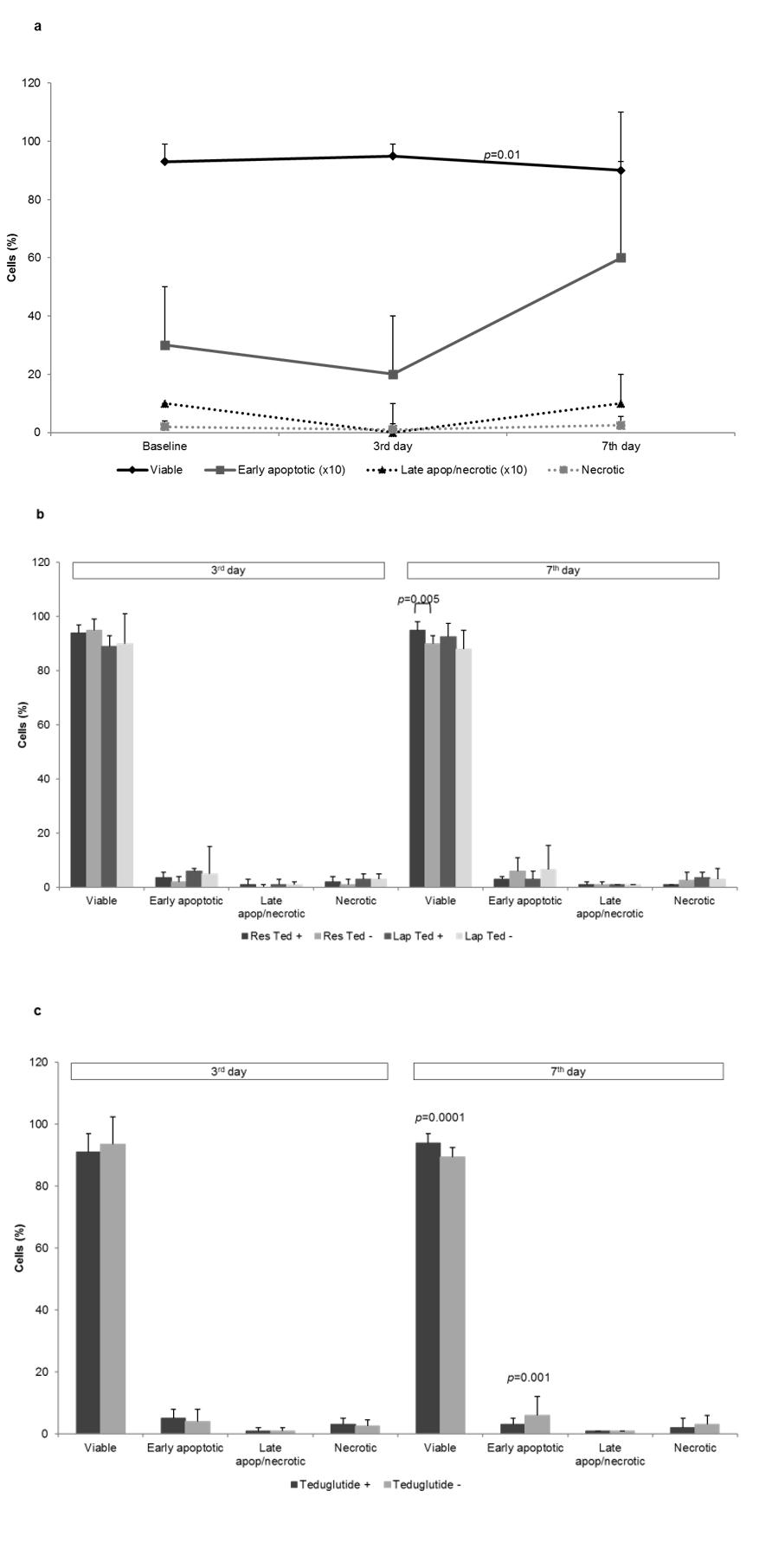Abstract
Purpose:
To investigate the inflammatory and redox responses to teduglutide on an animal model of laparotomy and intestinal anastomosis.
Methods:
Wistar rats (n=62) were allocated into four groups: “Ileal Resection and Anastomosis” vs. “Laparotomy”, each one split into “Postoperative Teduglutide Administration” vs. “No Treatment”; and euthanized at the third or the seventh day. Ileal and blood samples were recovered at the baseline and at the euthanasia. Flow cytometry was used to study the inflammatory response (IL-1α, MCP-1, TNF-α, IFN-γ and IL-4 levels), oxidative stress (cytosolic peroxides, mitochondrial reactive species, intracellular glutathione and mitochondrial membrane potential) and cellular viability and death (annexin V/propidium iodide double staining).
Results:
Postoperative teduglutide treatment was associated with higher cellular viability index and lower early apoptosis ratio at the seventh day; higher cytosolic peroxides level at the third day and mitochondrial overgeneration of reactive species at the seventh day; higher tissue concentration of IL-4 and lower local pro-to-anti-inflammatory cytokines ratio at the seventh day.
Conclusion:
Those findings suggest an intestinal pro-oxidative and anti-inflammatory influence of teduglutide on the peri-operative context with a potential interference in the intestinal anastomotic healing.
Key words:
Glucagon-like peptide-2. Anastomosis; surgical. Cytokines. Oxidative Stress.








